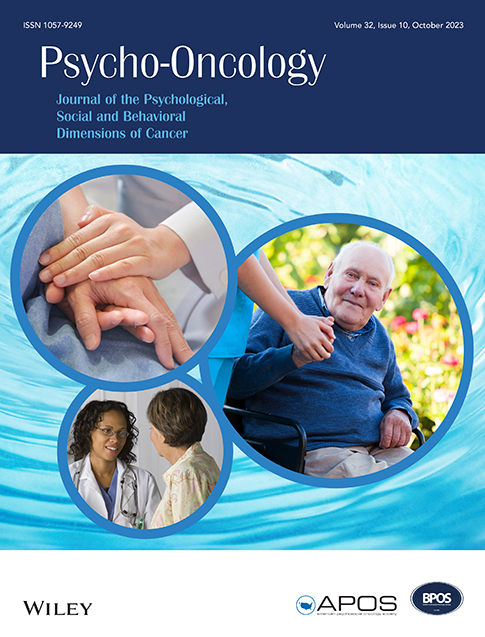The impact of employment loss on mentally unhealthy days among LGBTQ+ cancer survivors during the COVID-19 pandemic: Findings from the OUT National Survey
Abstract
Objective
Lesbian, Gay, Bisexual, Transgender, Queer, and all other sexual and gender minority (LGBTQ+) populations made up 7.1% of the US population in 2021. LGBTQ+ cancer survivors face a variety of economic and mental health disparities; however, the determinants of poor mental health among LGBTQ+ cancer survivors are understudied.
Methods
This analysis utilized the OUT National Survey which consists of N = 2233 LGBTQ+ cancer survivors (complete cases). Multivariable negative binomial and logit regression models were used to generate predicted values, predicted probabilities, and average marginal effects (AME) to assess the association between COVID-19 related employment loss and mentally unhealthy days (MUDs) and frequent mental distress among LGBTQ+ cancer survivors. Predicted values and marginal effects were generated with interaction terms (demographics interacted with employment loss) to explore the heterogeneity of the effect of employment loss among LGBTQ+ sub-populations.
Results
In bivariate analyses employment loss was associated with a higher number of MUDs (10.3, SD = 9.9 vs. 8.4, SD = 9.6; p-value<0.001) and frequent mental distress (34% vs. 26%; p-value = 0.001). AME from a multivariable negative binomial model revealed that employment loss was associated with 1.42 more MUDs (95%CI: 0.33–2.86). Demographic factors such as some sexual orientations, cis-female and non-binary gender, younger age, and a current cancer diagnosis were also associated with significant expected increases in the number of MUDs. When assessing the heterogeneity of the effect of employment loss some sub-populations experienced changes in the number of MUDs that pushed them over the threshold of frequent mental distress while others did not. Furthermore, identifying with multiple sexual orientations (AME: 0.19, 95%CI: 0.11–0.27), cis-female and non-binary genders (AME: 0.07, 95%CI: 0.2–0.12; AME: 0.18, 95%CI: 0.07–0.28), American Indian and Alaska Native race (AME: 0.17, 95%CI: 0.03–0.31), and a current cancer diagnosis (AME: 0.14, 95%CI: 0.09–0.19) were associated with an increase in the probability of experiencing frequent mental distress.
Conclusions
COVID-19 related employment loss negatively impacted the mental health of LGBTQ+ cancer survivors. LGBTQ+ specific supportive services as well as equity-based employment and income interventions are needed.
CONFLICT OF INTEREST STATEMENT
The authors report no potential or actual competing interests.
Open Research
DATA AVAILABILITY STATEMENT
The data that support the findings of this study are available from the corresponding author upon reasonable request.




